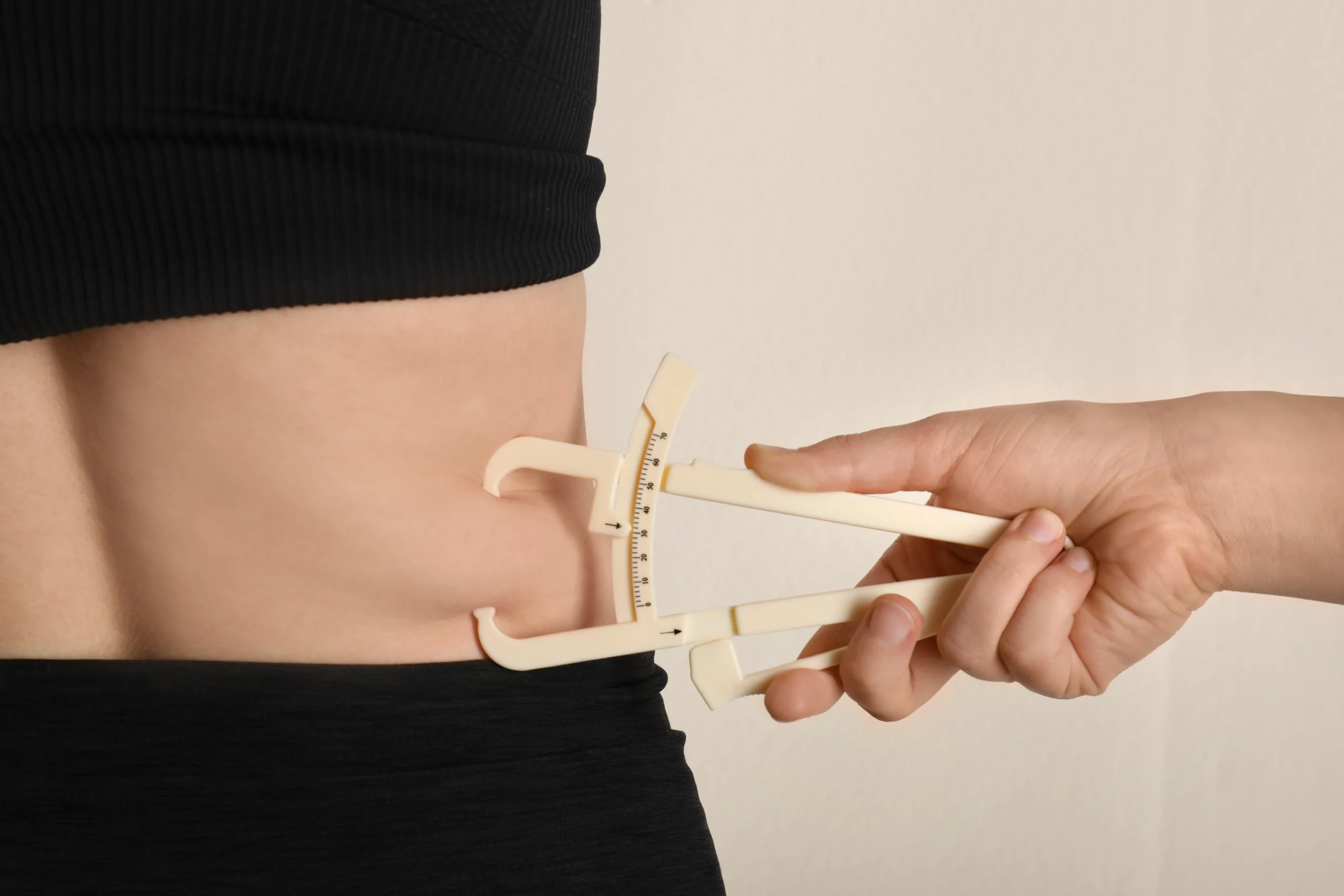What Is the Maximum BMI for Tummy Tuck?
Tummy tuck surgery, also known as abdominoplasty, is a cosmetic procedure that removes excess skin and fat from the abdomen and tightens weakened muscles to create a smoother, firmer midsection. Many people who consider this procedure often wonder whether their body mass index (BMI) will affect their eligibility.
The maximum BMI for a tummy tuck is typically around 30 to 35, depending on the surgeon and individual health factors. Some board-certified plastic surgeons may perform the procedure on patients with a slightly higher BMI if they are otherwise healthy, but higher BMI levels can increase the risks of complications during and after surgery.
Understanding how BMI affects tummy tuck candidacy can help you prepare for a safe and satisfying outcome.

Why Is BMI Important in Cosmetic Surgery?
BMI, or body mass index, is a measurement that estimates body fat based on your height and weight. Although it doesn’t account for muscle mass or body composition, BMI remains a key indicator in determining a patient’s surgical risk.
When it comes to cosmetic surgery, BMI is important because it correlates with how the body responds to anesthesia, wound healing, and overall recovery. A higher BMI can increase the likelihood of complications, such as infection, bleeding, poor wound healing, and blood clots. These risks are not unique to tummy tucks but apply broadly to most elective procedures.
Plastic surgeons use BMI as a guideline to evaluate whether it’s safe to perform surgery and to customize treatment plans that reduce risks.
Understanding the Ideal BMI for Tummy Tuck
The ideal BMI for a tummy tuck is generally under 30. Patients in this range are less likely to experience complications and tend to have smoother recoveries. However, BMI is only one factor in determining suitability.
A person with a BMI of 32 who exercises regularly and maintains stable health may be a better candidate than someone with a BMI of 28 who has uncontrolled diabetes or other health conditions. Your surgeon will also consider your age, lifestyle habits, medical history, and goals before recommending surgery.
For individuals slightly above the ideal BMI, it’s often best to lose some weight before undergoing a tummy tuck. Reaching a stable, healthy weight ensures that the results of your surgery are long-lasting and reduces the need for future touch-ups or revisions.
How BMI Requirements vs. Affect Your Surgery Options
BMI requirements exist primarily to ensure patient safety and optimize surgical outcomes. While there’s no universal rule, most surgeons recommend postponing a tummy tuck if your BMI is above 35. At that level, the risk of anesthesia complications and poor wound healing increases significantly.
If you’re above this range, your surgeon may suggest nonsurgical weight loss methods or a staged approach to body contouring. This could include liposuction first, followed by a tummy tuck after achieving a more favorable BMI.
Surgeons use these requirements not to discourage patients but to ensure that each individual’s body can handle the procedure safely. Following these guidelines also helps patients achieve better aesthetic results, with a flatter, firmer abdomen and a lower risk of postoperative issues.
Can You Get a Tummy Tuck with a High BMI?
Yes, you can get a tummy tuck with a high BMI, but it requires a thorough medical evaluation and a customized surgical plan. Many patients with a BMI between 30 and 35 have successfully undergone the procedure with excellent results.
However, surgeons approach these cases with extra caution. They may perform the surgery in a hospital setting rather than an outpatient facility to provide access to additional monitoring and resources. Patients may also need to undergo preoperative lab testing, cardiac evaluations, or other assessments to ensure safety.
If your BMI is significantly higher than 35, your surgeon will likely recommend achieving a lower, stable weight before proceeding with the procedure. This approach not only improves surgical safety but also helps your body adjust better to the physical changes that occur after surgery.
Using a BMI Calculator to Estimate Your Readiness
Before scheduling a consultation, it’s helpful to determine your current weight status using a BMI calculator. To calculate your BMI, divide your weight in kilograms by your height in meters squared (kg/m²).
For example, if you weigh 75 kg and are 1.65 meters tall, your BMI would be 27.5. Online BMI calculators make this process quick and easy, giving you a general idea of whether you fall within the recommended range for surgery.
Here’s how BMI categories are typically classified:
Under 18.5: Underweight
18.5–24.9: Normal weight
25–29.9: Overweight
30–34.9: Obese (Class I)
35–39.9: Obese (Class II)
40 or higher: Severely obese (Class III)
If your BMI falls above the ideal range, don’t be discouraged. With a healthy lifestyle and medical guidance, it’s often possible to reduce your BMI to a safer level before surgery.
Reaching Your Ideal Weight Before Surgery
Achieving your ideal weight before undergoing a tummy tuck can significantly enhance your results. Weight loss prior to surgery helps your surgeon contour your abdomen more precisely and reduces the likelihood of needing revisions.
Your surgeon may suggest combining dietary changes, exercise, and lifestyle adjustments to reach your goal. However, drastic or crash diets should be avoided because they can affect your immune system and delay healing. It’s best to focus on gradual, sustainable weight loss that can be maintained in the long term.
Some patients choose to undergo bariatric surgery or medical weight loss programs before having a tummy tuck. Once their weight stabilizes, typically after 6 to 12 months, they may then consider body contouring procedures to remove excess skin and tighten the abdomen.
Choosing a Board Certified Plastic Surgeon
Selecting a board-certified plastic surgeon is the most important decision you’ll make during your tummy tuck journey. Certification by the American Board of Plastic Surgery ensures that your surgeon has undergone rigorous training, adheres to safety standards, and possesses the skill to handle complex cases, including those involving higher BMI patients.
During your consultation, discuss your BMI, medical history, and goals openly. An experienced surgeon will evaluate your overall health and recommend a personalized treatment plan. They can also help determine whether a full tummy tuck, mini tummy tuck, or another body contouring option is more appropriate for your situation.
Patients should avoid providers who downplay the importance of BMI or promise unrealistic results. The best surgeons prioritize your safety and long-term satisfaction over quick results.
What to Expect If Your BMI Is Higher Than Recommended
Understanding Body Mass Index Beyond Numbers
Although body mass index is a useful tool, it shouldn’t be the only factor in determining candidacy for cosmetic surgery. BMI doesn’t measure body composition or differentiate between fat and muscle. Some individuals with a high BMI are in excellent physical condition, but they often have higher muscle mass, while others may carry excess fat in specific areas.
That’s why surgeons combine BMI with other assessments, such as body fat percentage, waist circumference, and overall health status. This comprehensive evaluation provides a clearer picture of your readiness for surgery, helping to plan for the best aesthetic and medical outcomes.
Conclusion: What is the Maximum BMI for Tummy Tuck?
Achieving a healthy BMI before a tummy tuck is one of the best ways to ensure a safe and satisfying result. While some patients may need to lose weight to reach the recommended BMI range, others may simply need to maintain their current level through a balanced diet and regular exercise. A tummy tuck is a surgical procedure designed to tighten the abdominal muscles and remove excess skin and belly fat, resulting in a smoother, firmer midsection.
During your weight loss journey, it’s important to remember that significant weight fluctuations after the tummy tuck procedure can affect your long-term results. Avoiding unnecessary weight gain and maintaining a healthy diet can help preserve your contours and support lasting improvements.
Tummy tuck works best for individuals who are already close to their goal weight and want to refine their shape. Following your recovery plan after undergoing surgery will further promote healing and maintain results.
Ultimately, choosing a qualified cosmetic surgeon ensures that every step of your treatment is tailored to your body’s needs, helping you enjoy the full benefits of this transformative procedure safely and confidently.
















